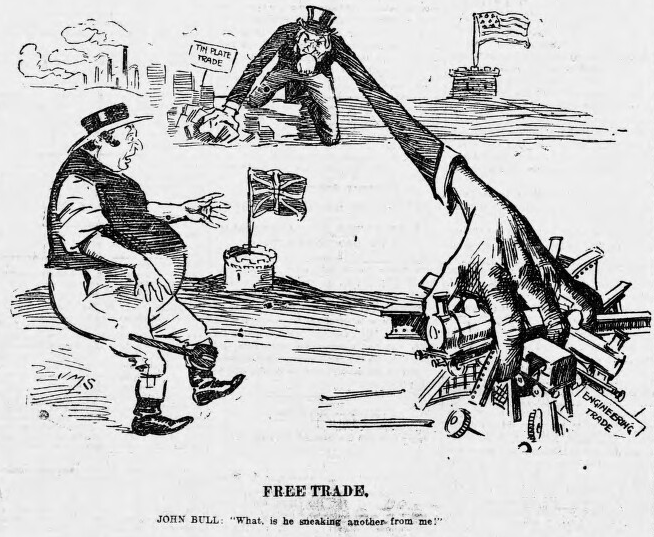Pro-Trade Economists Helped Elect Trump the Protectionist
People tend to crave direct cause-and-effect narratives, with a small number of protagonists who know what they’re doing. It frequently leads us to make mistakes, especially when talking about economic policy. It’s the mistake Bernie Sanders makes when he talks about all the “billionaires rigging the system,” rather than understanding the myriad ways big business and big government connect and give further advantages to both. Whether that’s his worldview or just pure politics, it’s a much easier story to tell on the campaign trail.
But we on the free market side of the debate, even the children of Hayek and spontaneous order, make the same mistake, and in the area of free trade it’s come back to bite us. As Jeffrey Tucker wrote last week, the Trump administration announced tariffs on imported solar panels and washing machines, with more promised to come. I’m aware of no topic on which there’s as much consensus among economists as free trade. You really have to look on the fringes to find significant exceptions. And why shouldn’t we agree? It’s mathematical fact that voluntary trade makes both parties better off. The most nuanced analysis most economists will expound sounds something like, “There may be losers in the short run, but through education and economic growth they’ll eventually prosper too.”
Last week, those pesky nuances signed a whole bunch of new trade restrictions into law. President Trump was elected in part precisely because he played off the resentment of those “losers in the short run” who lost their jobs when plants went overseas. Imagine you were a factory worker in your mid-50s, having worked at a plant for 30 years that’s now moving to a different continent. Your life’s work moved half a world away, it’s not immediately obvious how you’ll support your family, and oh, here’s a voucher to a community college to go learn how to do something else. There will always be room politically for a candidate who makes those displaced in the short run by free trade feel a sense of dignity, even if the reasons are crass political calculation.
To fight for freer trade, we must ignore the easy narrative of two partners making each other better off, and take an uncomfortable look at who is being hurt. Sure, the lower prices American consumers pay for the foreign-made good will free up money for saving or other purchases, and greater economic growth will eventually help those who were laid off. But that process may seem opaque, while “Make America Great Again” is a clear call to action. Instead of glossing over those people “displaced” by free trade, we should look right at them and say we wish they didn’t have to suffer, but remain steadfast in our message to them and everyone else that we must have free trade to give our economy the chance to prosper. If this seems a bit warm and fuzzy, just remember that these people helped elect a candidate with stated protectionist policies in part because they felt ignored. One can still resolutely support free trade while recognizing that it can involve complicated processes and significant life changes for some people.












